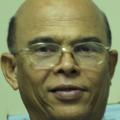Burma's military regime sponsored the 1990 General Elections because of the continuous domestic and international demands in the name of democracy. Although its leader Aung San Suu Kyi was in custody, National League for Democracy won a landslide victory by 82 percent of the parliamentary seats on 27 May, 1990. The election result upset the apple cart of the junta.
Later, the junta refused to honour it and Aung San Suu Kyi has been under detention for scores of years till now. Besides, thousands of students, NLD members and supporters have been thrown into prison as well. There are approximately 2200 political prisoners still in various prisons throughout the country. By refusing to honour the results of the 1990 election, the military regime made it clear publicly that they will not respect people's votes at all. The stupidity of the generals is that they have poor knowledge about the people's ballots. The results of the people's votes or election result will remain valid until Members of Parliament themselves agreed to end the assembly.
The nastiest is that without honouring the 1990 election result, the head of the junta has been planning to launch another election in this 2010. It's a kind of immoral act insulting the whole nation and its people by deleting the 1990 people's ballots. The majority of the population who want genuine change cannot forget the immorality of the generals. The junta's shortsightedness toward the future of Burma visibly starts a civil strife in the poverty stricken country since the unjust election laws released.
.
Currently, Burma is at a crucial political crossroads. While the military regime wants to keep up its power via sham 2010 elections, the people, who long for genuine change, are demanding basic human rights such as freedoms of expression and association. But the junta seems as stubborn as a mule and no mood to allow civil liberty.
The military regime has intentionally barred pro-democracy leader Aung San Suu Kyi from running in upcoming elections and forced her party to expel her under a new election law unveiled on March 10. This is causing serious political mayhem in the military-ruled country.
The Political Parties Registration Law, published in official newspapers, prohibits anyone convicted by a court of law from joining a political party and thereby disqualifies them as candidates. It also instructs parties to oust members who are "not in conformity with the qualifications to be members of a party," a clause that could force Suu Kyi's exclusion. Parties that do not register automatically come to an end, the law says.
Article 21 of the Universal Declaration of Human Rights provides that the will of the people shall be the basis of the authority of government. It follows that in any nation, the will of the citizens should be reflected in the Constitution that forms the groundwork of government. The process of making the Constitution must be free, fair and all-inclusive, and reflect the will of the people.
According to vigilant lawyers, Burma's Constitution-making process was controlled by the ruling military junta with totally paying no attention to the peoples' contribution. Under existing law in Burma, the people are prohibited from participating in the Constitution-making process; infringement of this law is punishable by five to 25 years' imprisonment. This directly opposes the Universal Declaration of Human Rights.
Despite that, many people are rallying in support of the "Shwegondine Declaration" issued on April 29, 2009, by the National League for Democracy, which set two conditions for its participation in the 2010 election. One is that provisions in the 2008 Constitution which are not in harmony with democratic values be amended. Two is that an all-inclusive, free and fair poll be held under international supervision.
During his May 9-10 two-day visit to the military-ruled country, US Assistant Secretary of State for East Asian and Pacific Affairs Mr Kurt Campbell met several government ministers and opposition leaders, including detained democracy icon Aung San Suu Kyi,. He said following his talks that the United States was 'profoundly disappointed' in the junta's measures for the forthcoming elections and wanted 'immediate steps' to address fears that they would lack legitimacy.
According to Burma's chairman of the 2010 election commission, the country has no need for foreign observers to monitor its first elections in two decades, state media reported on 10 May, despite international concerns that the polls will be deficient in legitimacy.
"International watchdog groups do not need to come, " the chairman of the country's election body Thein Soe told the visiting US envoy, according to the New Light of Myanmar newspaper.
In his Rangoon statement, Campbell said the US government outlined a proposal to the Burmese officials "for a credible dialogue' for all concerned parties to agree on how to conduct the upcoming poll, but he said the regime had instead moved forward unilaterally without consulting opposition and independent voices.
(Note: You can view every article as one long page if you sign up as an Advocate Member, or higher).





